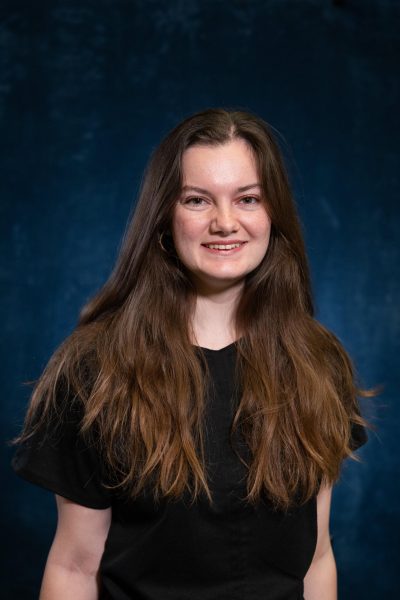The University of California announced that the system received the highest number of undergraduate applications in its history for Fall 2021 last month, with a significant number of Black and Hispanic/Latino students applying to UC San Diego in particular. The double-digit increase has been praised by the UC Board of Regents and points to the growing attendance of UCs by students from communities of color.
“Our record number of applications is a testament to the resilience of students and their families as well as their undeterred focus on higher education,” said UC President Michael V. Drake, M.D. “Californians continue to see us as the pathway for a better future.”
As of this year, Hispanic/Latino and Black students compose one-fifth of the campus population, a collective increase of eight percent since 2010. The UC system did not release comprehensive racial and ethnic data for all 118,360 applicants.
However, it has provided some information on California residents who applied for UC San Diego. It was reported that roughly 4,500 Californian applicants are Black, which is a 20.8 percent increase from the previous year. Conversely, for Latino students, the number of applicants rose by 2,974, or approximately 15 percent.
Results from a report released by The Education Trust found that UCSD was among a comprehensive list of the least accessible elite public colleges in the country in regards to African-American and Latino students. These figures have aroused a great deal of discontent among student organizations of color on campus.
In the aftermath of the George Floyd protests in June 2020, the Black Student Union at UCSD issued demands for racial equity, including the reallocation of 30 percent of funds from the UCSD Police Department. They have demanded that Black students constitute 10 percent of campus enrollment and tenured/tenure track faculty by 2025, in addition to the creation of a college “dedicated to the education and empowerment of Black students.”
While the university has still yet to deliver on those demands, other on-campus organizations offer opportunities and resources for first-generation students to thrive at UCSD. The First Generation Student Alliance (FGSA) seeks to integrate Latino, African-American, and other underrepresented first-generation students at UCSD. They offer access to campus opportunities and academic resources while hosting community bonding activities that empower new students.
Latino UC attendance had been low until recently, with applicant numbers jumping from 34 to 36 percent last year in June. Demographic data from a 2018 Campaign for College Opportunity report had shown that while Latino students are graduating from high school and enrolling in secondary education in higher numbers, they are still less likely than other ethnic groups to obtain a four-year college degree.
Black applicants to UCs have reached a record high, totaling 21.8 percent of the nearly 250,000 applicants last year. Another study published by The Campaign for College Opportunity found that 65 percent of Black students are not prepared by their high schools to be eligible applicants to UCs or California State Universities. Furthermore, these students are disproportionately underrepresented at UCs, comprising only two percent of the total undergraduate population.
Some may point to the banning of affirmative action in California resulting in consistently low levels of Black students attending college. A study published by researchers at the University of Washington and the Brookings Institution found that after affirmative action was banned, there was a two percent decrease in underrepresented students being admitted to public universities, comprising mainly Latino and Black students. In 2020, Proposition 16, an initiative that would have revoked Proposition 209’s 1996 ban on race-based affirmative action was rejected by voters.
An EdSource analysis of over two decades worth of student enrollment data found that Prop. 209 had a noticeable impact on the number of underrepresented students enrolled at California’s public universities.
Others point to the effect over-emphasizing standardized testing has had on Black applicants’ college acceptance rates. Many UCs are selective when it comes to SAT scores, with UCSD preferring applicants with a cumulative score of 1250 or higher. Black students achieved at least 480 out of 800 for evidence-based reading and writing and 530 out of 800 for math. Because of this, Black students have been non-competitive with regards to standardized testing, thus weakening their chances of being accepted to a UC.
“If universities selected students based on [high school GPA] instead of test scores, their selection pools would have more racial diversity than they do now,” wrote Joseph A. Soares, editor of Teachers College Press of Columbia University. “University admissions based on test scores perpetuate racial disparities, high school grades narrow them. If we are serious about rooting out systemic racism, we must toss these racist tests.”
In light of the academic discontent produced by the pandemic, the UC Board of Regents approved the suspension of the standardized test requirement for all California freshman applicants until 2024.
“I think this is an incredible step in the right direction toward aligning our admissions policy with the broad-based values of the University,” UC Board of Regents Chair John A. Pérez said before the vote. “I see our role as fiduciaries and stewards of the public good and this proposal before us is an incredible step in the right direction.”
Notification of Fall 2021 admission decisions for UC schools, including UCSD, begins on March 1, 2021. Students will be given until June 1 to submit their Statement of Intent to Register.
Artwork by Ava Bayley for the UCSD Guardian
















Alpana Carey • Apr 12, 2021 at 9:10 am
Great writing Joey, keep it up.
Ron Ruiz • Feb 19, 2021 at 8:29 am
Found article very interesting. Thank you!
Mary Ruiz • Feb 19, 2021 at 7:02 am
Thumbs up Jose!